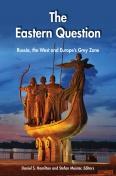Introduction
Russia entered a period of acute crisis the day it occupied and annexed Crimea. In history textbooks, it might well mark the beginning of the end of Vladimir Putin’s rule. It will also read as a turning point in European and transatlantic policies toward Russia’s leadership. Much of the change in paradigm was triggered by Moscow’s intrusive and subversive methods in the “in-between” states, the states that remained stuck between Europe and the Russian Federation after 1991. Moscow’s unswerving support of Assad’s dictatorial military rule [in Syria] is, to a large extent, the consequence of Putin’s fear of “regime fall” and rule-of-law aspirations in several prominent east European and Mediterranean countries.
In 2014–15, the pace of change was momentous. In 2016–17, it might accelerate even further, as we see no sign of serious appeasement in Russian domestic and foreign conduct. At the same time, Western governments need to be ready for long-term crisis management, and not just urgent conflict containment, as tensions and confrontations with Moscow will continue on a regular basis. Even if Ukraine becomes a low-intensity conflict, European countries will be facing the challenge of long-term insecurity in their immediate vicinity.
Economic recession, authoritarian protectionism, and rising confrontation with most neighbors, west and south, are driving Russia onto a very uncertain path. Confrontational policies are bound to be less safe and less controllable than negotiation and conflict-resolution strategies. It is always easier to fall into conflict and violence than to end war and to put the lid back on the Pandora’s box of nationalist, xenophobic hysterical war scares.
This chapter makes three major observations pertaining to Russia and Vladimir Putin’s future policies, and offers three prospective suggestions about how Western governments might want to tackle rising challenges.
About the author:
Marie Mendras is professor at the Paris School of International Affairs of the Instituts d’études politiques (Sciences Po), and researcher with the National Center for Scientific Research (CNRS) in Paris. In 2015- 2016 she served as Senior fellow at the Transatlantic Academy and visiting scholar at Georgetown University. She is an Associate Fellow of the Russia and Eurasia Program at Chatham House in London. Between 2008-2010 she was Professor of Government at the London School of Economics, and has taught at a number of European universities, as well as at MGIMO in Moscow. She has been a consultant for both the French Foreign and Defense Ministries, and is former Director of the Policy Planning Staff for the French Foreign Ministry. Her latest book is Russian Politics. The Paradox of a Weak State. She received her doctorate from Sciences Po and her MA from Harvard University.

